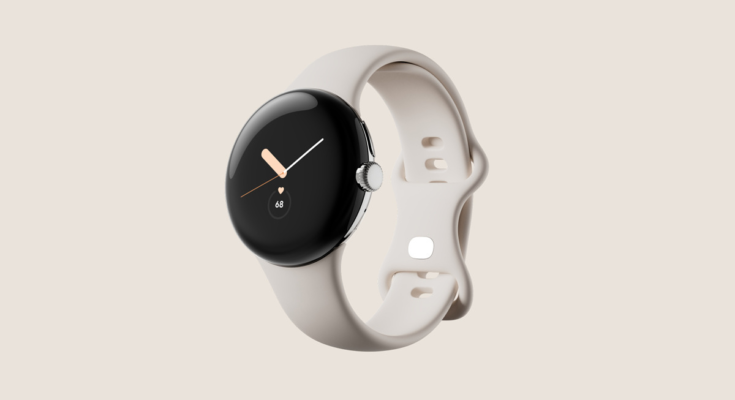The long-awaited Google Pixel Watch was finally unveiled at this year’s Google I/O, though the company was particularly cagey about its specifications. We didn’t actually get to hear a whole lot, aside from the fact that it was also going to be launching alongside the Pixel 7 series. Now, though, a new report from 9to5Google suggests that it’s going to pack the Exynos 9110, a chipset that launched four years ago.
While obviously it’s frustrating that Google isn’t packing the latest Exynos W920 chipset in its first smartwatch, there are likely reasons as to why. The most likely reason is that the Pixel Watch has been in development for a long, long, time. The company has been planning it since the very first Google Pixel smartphone, and rumors again picked up steam in 2018 ahead of the Pixel 3 series launch.
Given all of that, it’s very possible that this is being developed on older hardware because it’s technically an older device. As 9to5Google reports, the Pixel Watch began development on Android 9 Pie. If Google eventually switched to the Exynos W920, it could have delayed development even further.
It’s not all bad, though. The Exynos 9110 is built on a 10nm process, packing two Cortex-A53 cores. That means it’s more efficient than Qualcomm’s latest offering, and will hopefully pair nicely with the reported 300 mAh battery. For reference, Qualcomm’s latest wearable chip is the Snapdragon Wear 4100 Plus, produced on a 12nm process and packing four Cortex-A53 cores.
Really, the only issue in the case of the Pixel Watch is that it likely won’t be able to compete with the best of Samsung, with a Galaxy Watch 5 series expected to launch sometime before the Pixel Watch will. The Galaxy Watch 5 will likely pack, at minimum, an Exynos W920 which means that it’ll still beat the Exynos 9110, though probably not by a huge amount in real-world usage.
While it would be nice to have the latest and greatest chipset in Google’s first premier smartwatch outing, processors aren’t everything. We learned as much with the Google Pixel 6 series and how Google Tensor remained competitive against the current generation of chipsets thanks to Google’s optimisations, despite being based on a theoretically weaker Exynos chipset. We’ll be waiting to see if the rumors are true, and if so, what Google can pull off with an older chip.
Source: 9to5Google



